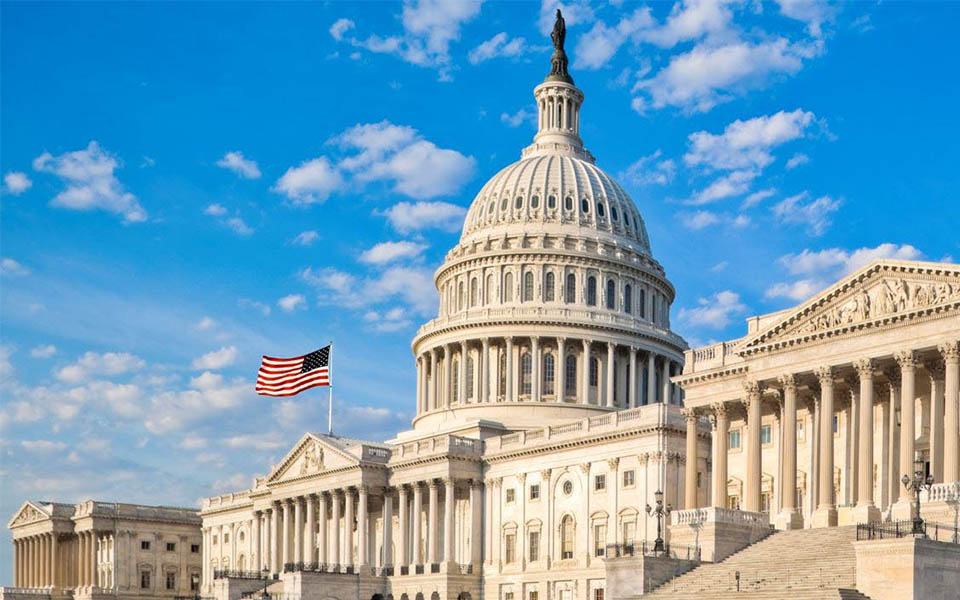WHAT TO EXPECT IN EMPLOYEE BENEFITS
As 2024 comes to an end and we begin to prepare for 2025, following are some points to keep in mind. A new Congress and a new executive branch will be in place shortly after the new year. During the last Trump administration much energy was put toward repealing the Affordable Care Act. While there will likely not be a wholesale effort to overturn the law, it is likely that efforts will be made to modify parts of it. Changes could come by way of legislation, administrative action, court ruling or all of the above. In the meantime, employers must do their best to comply with the requirements as they stand today. Following is an overview of issues to keep in mind as you prepare for 2025.
NO SURPRISES ACT
The No Surprises Act changed the way emergency services are covered. Specifically, it replaces the emergency provisions of the Affordable Care Act (ACA) and prohibits balanced billing in three instances (1) emergency services, (2) out-of-network services received in-network, and (3) emergent air ambulance services. While patients cannot be balanced billed for these amounts, the payor (health plan) and provider can negotiate through a baseball style arbitration for what the plan will pay. This portion of the law has been litigated and re-litigated in the few short years since the law’s enactment.
Most recently, the U.S Court of Appeals for the Fifth Circuit issued its opinion partially reversing a Texas District Court’s decision that vacated certain provisions of the regulations. At this time, we are awaiting new guidance from the Departments of Health and Human Services, Labor and Treasury along with the Office of Personnel Management on the findings of the Appeals Court. We will continue to monitor for updated guidance. In the meantime, for more information and to track the status see
here.
EXPANSION OF PREMIUM ASSISTANCE SET TO EXPIRE
The Inflation Reduction Act expanded health plan premium assistance available to certain individuals who purchase coverage through the marketplace. This expansion is set to expire at the end of 2025. Unless it is extended, it will revert to the pre-Inflation Reduction Act rules. Currently, the expansion applies to those that earn over 400% of the Federal Poverty Line if the cost of coverage exceeds 8.5% of household earnings and offers larger subsidies for those below 400%.
EMPLOYER REPORTING REQUIREMENTS EXPECTED TO BE RELAXED
As of this writing, Congress has passed, and President Biden is expected to sign, two laws that make modest tweaks to the reporting and disclosure requirements and certain other aspects of the Affordable Care Act.
Of particular note, and important to employers subject to employer shared responsibility, a six-year statute of limitations (currently no statute of limitations exists) would be applied to imposition of employer shared responsibility penalties. As a reminder, an employer employing 50 or more employees could be at risk of an IRS § 4980H(a) or 4980H(b) penalty for failure to offer adequate affordable coverage to full-time employees. This will come as welcome news to employers potentially at risk of a penalty.
Employers will have at least 90 days to respond to 226-J letters, as opposed to the current 30-day time frame. These letters are used to propose employer shared responsibility payments. A summary is available
here.
Employers sponsoring self-funded plans must report coverage offered to employees and dependents. As part of this reporting, a social security number for employees and covered dependents. This new law would allow the use of an individual’s date of birth in the absence of a social security number, codifying current flexibilities. The effective date for this amendment applies to returns that are due after December 31, 2024.
The Paperwork Reduction Act modifies the ACA by eliminating the requirement for employers and providers to send tax forms to those covered under their health plans, codifying current flexibilities. Previously, employers and providers were required to send a 1095-B or 1095-C as proof of minimum essential coverage. Under the new law, the forms will only be sent upon request. If such a request is made, the form must be provided by January 31 or within 30 days of the request, whichever is later. In addition, employers and providers will need to notify covered individuals of their right to request these forms. For more information see
here. The amendments made by the Paperwork Reduction Act apply to returns for calendar years after 2023.
Except for the changes outlined in these two new laws, all other reporting requirements of the ACA remain unchanged.
OTHER COMPLIANCE ISSUES
For a summary of certain other employment compliance obligations to be aware of in 2024 and beyond, see the 2024 Year End At Issue
here.
YEAR-END REMINDERS
PREVENTIVE HEALTH SERVICES
As a reminder the Affordable Care Act (ACA) requires that certain services be provided at no cost to the participant. Periodically, the list of services that must be covered is updated. When a new preventive mandate is approved, a plan must begin covering it by the first day of the plan year beginning one year after the date of approval. A complete list of ACA-required preventive services can be accessed from the
Healthcare.gov website.
HSA Compatible Preventive Services
To be HSA eligible an individual must be covered by a qualifying high deductible health plan. A qualifying high deductible health plan for 2025 must meet certain requirements. See chart below for 2025 HSA criteria.
Preventive services can be provided prior to the satisfaction of the minimum statutory deductible. Recent guidance has clarified that the following can be provided without jeopardizing HSA eligibility:
- Over-the-counter oral contraceptives, including emergency contraception
- Male condoms
- Breast cancer screenings in addition to mammograms (e.g., MRI and ultrasounds)
- Continuous glucose monitors
- Insulin products
Employer Shared Responsibility Provisions
Applicability. For purposes of the ACA’s employer shared responsibility requirement, applicable large employer (ALE) status is determined each calendar year, based on the average size of the employer’s workforce during the prior year. Thus, if you averaged at least 50 full-time employees, including full-time equivalent employees during 2024, you are most likely an ALE for 2025, and are subject to the reporting requirements due in early 2026.
Affordability Standard. For purposes of determining affordability, coverage under an employer-sponsored plan is deemed affordable if the employee’s required contribution to the plan does not exceed 8.39% of the employee’s household income for the taxable year, based on the cost of single coverage in the employer’s least expensive plan. For 2025 the affordability increases to 9.02%.
Increase in Excise Tax Penalties. The chart below reflects the annual penalties, for purposes of calculating the ‘no coverage’ excise tax pursuant to Code Section 4980H(a), and the ‘inadequate or unaffordable’ excise tax pursuant to Code Section 4980H(b) for 2022 to 2025. These are the excise taxes that could apply if an applicable large employer is found not to have offered health coverage to a full-time employee. These amounts are based on the HHS inflationary percentage contained in its annual benefit and payment parameter standards for the relevant year, and as officially released by the Internal Revenue Service. Annualized penalties are assessed on a monthly basis.
Small Business Tax Credit (SBTC)
Small businesses and tax-exempt employers who provide health care coverage to their employees under a qualified health care arrangement are entitled to a tax credit, known as the small business tax credit (SBTC). To be eligible for the SBTC, the employer must employ fewer than 25 full-time equivalent employees, whose average annual wages are less than $66,600 (indexed for 2025; the wage ceiling in 2024 is $64,800).
The tax credit phases out for eligible small employers when the number of its full-time employees (FTEs) exceeds 10; or, when the average annual wage for the FTEs exceeds $33,300 in the 2025 tax year (the phase-out wage limit in 2024 is $32,400). As a reminder, only qualified health plan coverage purchased through a SHOP marketplace is available for the tax credit, and only for a 2-consecutive year period.
For purposes of calculating the SBTC, the Form 8941 is filed annually on the employer’s tax return as a general business credit; tax exempt entities would file the Form 8941 with its Form 990-T.
Additional ACA-related Fees
Patient-Centered Outcomes Research Institute (PCORI) Fees
The PCORI fee is assessed on the average number of lives covered under the policy or plan. The fee will continue to be assessed through 2029.
For policy and plan years ending between October 1, 2023, and October 1, 2024, the fee is $3.22 per covered life. The fee increased to $3.47 per covered life for policy and plan years ending between October 1, 2024, and before October 1, 2025 (applicable for a 2024 calendar year plan). Affected entities are required to pay the fees and file the Form 720 by July 31st of each year.
ACA Cost Share Restrictions
The charts below reflect the 2026, 2025 and 2024 inflationary adjustments applicable to out-of-pocket (OOP) limits including deductibles, co-insurance and co-payments in ACA plans. These cost-share restrictions apply to insured plans offered via the marketplace and insured and self-funded plans offered outside marketplace.
HSA Out-of-Pocket Limits
As a reminder, individuals aged 55 or older may make an additional $1,000 “catch-up” contribution to their HSAs.
UPDATES: STATE-REQUIRED INDIVIDUAL MANDATE REPORTING
The states of California, District of Columbia, Massachusetts, New Jersey, Rhode Island, and Vermont have enacted individual mandate laws that require residents to be covered by minimum essential coverage (MEC) or pay a state tax. Further, certain states require entities who provide MEC to file information returns to the relevant state revenue departments. Most of these states accept the Form 1094 and 1095 series used for federal MEC filing purposes. Recently, several state revenue departments have issued updates relating to these reporting obligations, as reflected in the charts below.
Notably, unlike many other employment laws, these state individual mandates are not based on place of employment; rather, the applicability of the state individual mandate laws is based on state of residence.
Individual State Mandate Reporting |
||||
State |
Covered entities |
Applicable form(s) |
Report due |
Resources |
| California |
|
|
|
|
| District of Columbia |
|
|
|
|
| Massachusetts |
|
|
|
|
|
|
|
|
|
| New Jersey |
|
|
|
|
| Rhode Island |
|
|
|
|
| Vermont |
|
HIGHLIGHTS OF ACA-RELATED REPORTING AND DISCLOSURE REMINDERS
The two tables below reflect certain reporting and disclosure requirements.
ACA-required Reporting Reminders
Form |
To Whom |
Due Date |
|
Form W-2* |
|||
|
ACA-required reporting includes:
|
|
|
|
Form 1094/1095* |
|||
|
|
|
|
| Furnish Form 1095; or certain Form 1095-B reporting entities can utilize simplified posting method |
|
|
|
Form 720 |
|||
| Used for purposes of Patient Centered Outcome Research Institute (PCORI) fee |
|
|
|
Gag Clause Attestation |
|
|
|
Health Care and Prescription Drug Reporting (RxDC Reporting) |
|
|
*Beginning in 2024, employers issuing 10 or more forms in aggregate must e-file their information returns.
ADDITIONAL ACA-RELATED DISCLOSURE REMINDERS
Form |
To Whom |
Due Date |
|
|
Summary of Benefits and Coverage (SBC) SBC template and related materials Note the requirement to provide in a culturally and linguistically appropriate manner. For additional information please see |
|
|
|
| Advanced 60-day Notice of Material Change in Benefits |
|
|
|
|
Notice of Marketplace Options |
|
|
INCREASED PENALTIES FOR CERTAIN COMPLIANCE VIOLATIONS
Federal government agencies who enforce the ACA, including the Departments of Labor, Treasury and Health and Human Services, have authority to adjust civil penalties attributable to compliance failures.
About the Author: Karen R. McLeese is Vice President of Employee Benefit Regulatory Affairs for CBIZ Benefits & Insurance Services, Inc., a division of CBIZ, Inc. She serves as in-house counsel, with particular emphasis on monitoring and interpreting state and federal employee benefits law. Ms. McLeese is based in the CBIZ Kansas City office.
The information contained herein is not intended to be legal, accounting, or other professional advice, nor are these comments directed to specific situations. The information contained herein is provided as general guidance and may be affected by changes in law or regulation. The information contained herein is not intended to replace or substitute for accounting or other professional advice. Attorneys or tax advisors must be consulted for assistance in specific situations. This information is provided as-is, with no warranties of any kind. CBIZ shall not be liable for any damages whatsoever in connection with its use and assumes no obligation to inform the reader of any changes in laws or other factors that could affect the information contained herein.
© Copyright CBIZ, Inc. All rights reserved. Use of the material contained herein without the express written consent of the firms is prohibited by law. This publication is distributed with the understanding that CBIZ is not rendering legal, accounting or other professional advice. The reader is advised to contact a tax professional prior to taking any action based upon this information. CBIZ assumes no liability whatsoever in connection with the use of this information and assumes no obligation to inform the reader of any changes in tax laws or other factors that could affect the information contained herein. Material contained in this publication is informational and promotional in nature and not intended to be specific financial, tax or consulting advice. Readers are advised to seek professional consultation regarding circumstances affecting their organization.
“CBIZ” is the brand name under which CBIZ CPAs P.C. and CBIZ, Inc. and its subsidiaries, including CBIZ Advisors, LLC, provide professional services. CBIZ CPAs P.C. and CBIZ, Inc. (and its subsidiaries) practice as an alternative practice structure in accordance with the AICPA Code of Professional Conduct and applicable law, regulations, and professional standards. CBIZ CPAs P.C. is a licensed independent CPA firm that provides attest services to its clients. CBIZ, Inc. and its subsidiary entities provide tax, advisory, and consulting services to their clients. CBIZ, Inc. and its subsidiary entities are not licensed CPA firms and, therefore, cannot provide attest services.















